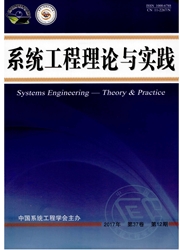

 中文摘要:
中文摘要:
量化投资尝试利用计算机算法来预测证券的价格和进行证券的交易,并从中获取超额收益,是系统工程在金融投资领域的重要应用.本文设计了一套基于机器学习和技术指标的量化投资算法ML—TEA(machine learning and technical analysis).该模型以技术指标作为输入变量,再分别通过不同的机器学习算法来预测股票数日之后的涨跌方向,并根据预测的方向来构建投资组合.实证结果显示:第一,三种模型的年化收益率都在25%以上,远超大盘指数的10.60%、买入持有策略的3%以及现有策略.从风险调节绩效(夏普比率、特雷纳比率和詹森绩效)来看,三种策略也都远超基准策略和现有策略.以夏普比率为例,三种策略均在1.50以上,而市场指数的夏普比率为0.38.第二,Ada—TEA和SVM—TEA都可以容忍远高于市场实际成本的交易成本.
 英文摘要:
英文摘要:
Quantitative investment is an important application of system engineering in the financial investment area. Quantitative investment tries to automatically invest on securities using computational algorithms, and to obtain excess return. This paper proposes a novel quantitative trading algorithm based on machine learning and technical analysis, named "ML-TEA" (machine learning and technical analysis). ML-TEA predicts the stock's movements using the technical indicators calculated by prices and volumes. The empirical results show that firstly, three strategies can obtain an annual return of 25%, which outperforms the index's 10.60% and buy and hold's 3%, and the state of the art algorithms. The three algorithms also significantly outperform the benchmarks and the state of the art in terms of risk adjusted return, i.e., Sharpe ratio, Treynor ratio, and Jensen's alpha. Secondly, Ada-TEA and SVM-TEA can resist reasonable transaction costs that are much higher than the actual transaction costs.
 同期刊论文项目
同期刊论文项目
 同项目期刊论文
同项目期刊论文
 期刊信息
期刊信息
